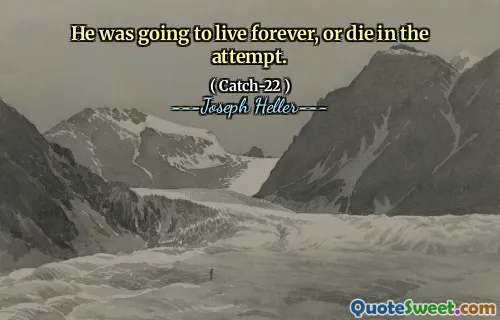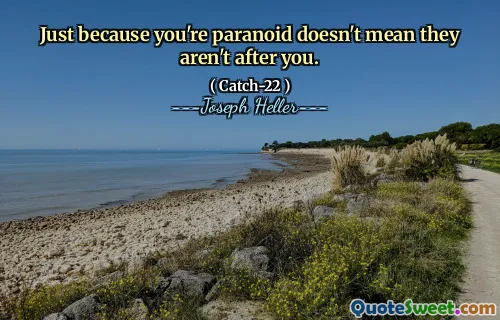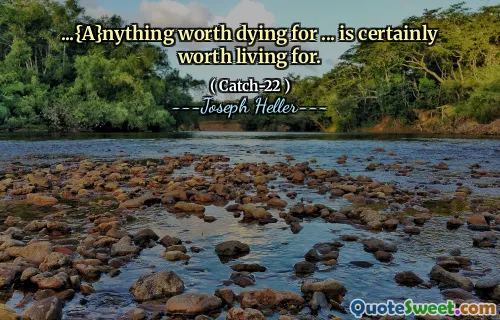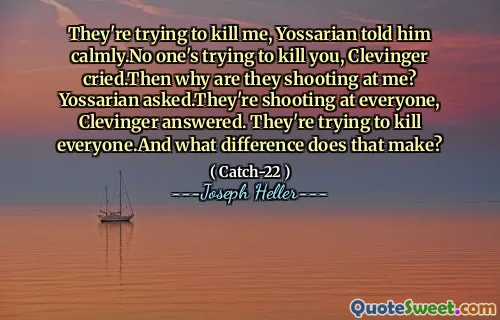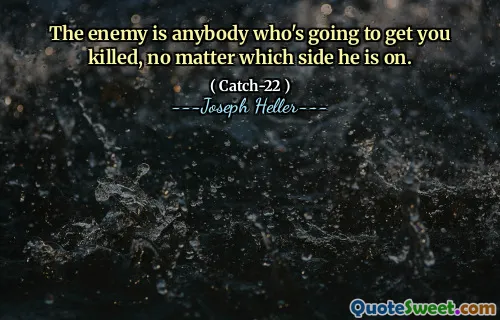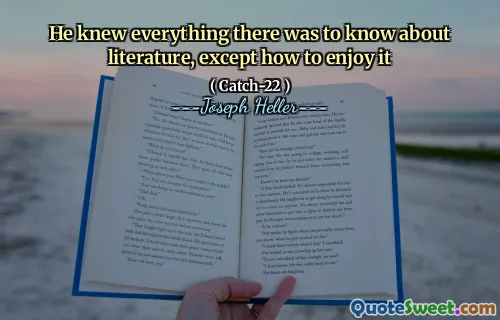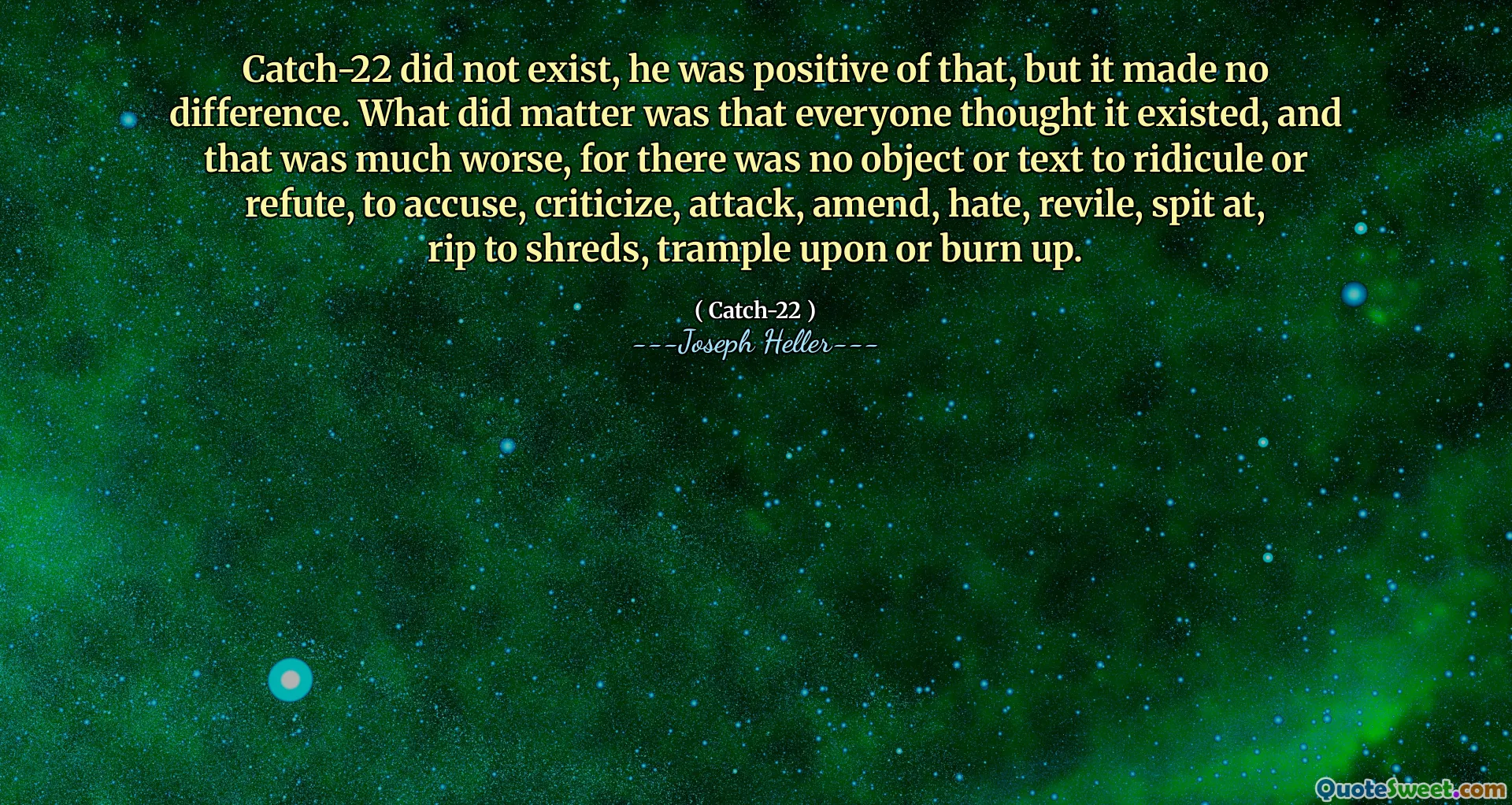
Catch-22 did not exist, he was positive of that, but it made no difference. What did matter was that everyone thought it existed, and that was much worse, for there was no object or text to ridicule or refute, to accuse, criticize, attack, amend, hate, revile, spit at, rip to shreds, trample upon or burn up.
In Joseph Heller's novel "Catch-22," the protagonist grapples with the concept of a paradoxical rule that governs the lives of soldiers. Although the main character is certain that this rule, known as Catch-22, is merely an illusion, its power lies in the widespread belief in its existence. This pervasive acceptance creates a formidable obstacle that cannot be easily challenged or dismissed.
The real issue is the lack of a tangible element to confront or argue against. The absence of a concrete definition or a specific target leaves individuals powerless, as they cannot direct their frustrations or criticisms towards something tangible. This reflects a deeper commentary on the arbitrary nature of rules and the impact of collective belief on individual actions and thoughts.
